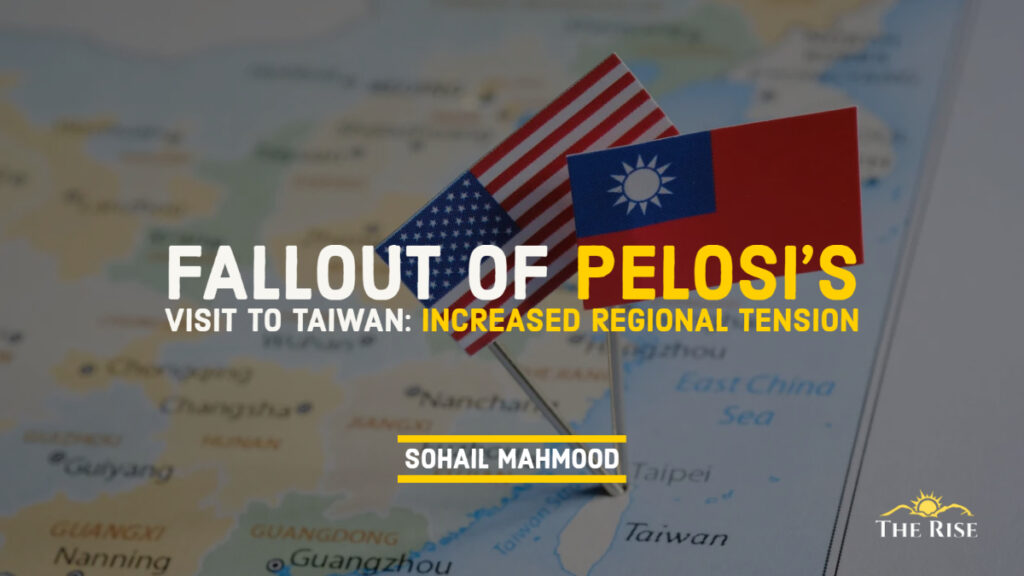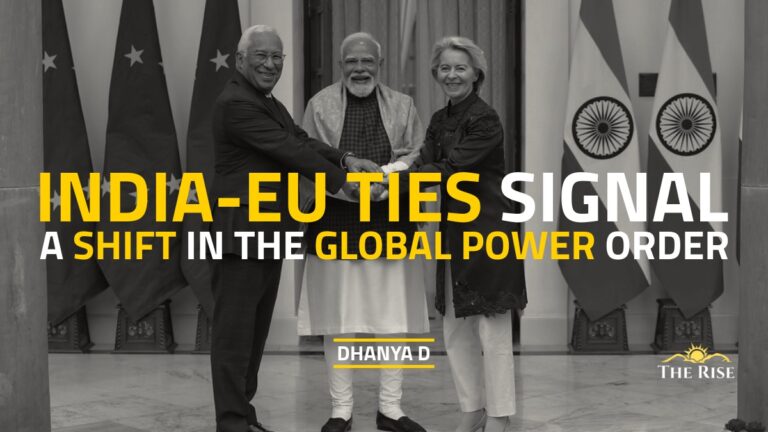In the latest eruption of regional tensions, China announced a resumption of military exercises around Taiwan which seems to be the fallout of the Pelosi visit to Taiwan. The American response is inadequate to the exigency of the threat as it does not project strength anymore. The pivot approach of the United States towards Asia will now become a reality. Any war is going to devastate the global supply chains, already encountering interruptions and insecurity.
Soon after Pelosi’s visit to Taiwan, an American congressional delegation is now in Taipei holding talks with the leadership. Today, China is castigating the United States for cheering Taiwan’s independence. It has declared that it will take tough actions to defend itself. In the latest eruption of regional tensions, China announced a resumption of military exercises around Taiwan which seems to be the fallout of the Pelosi visit to Taiwan.
Earlier, Pelosi’s visit had resulted in an unprecedented but measured Chinese military response. The American response has also been guarded. It accuses China of using Pelosi’s visit as a pretext to try to change the status quo in the Taiwan Strait.
The American response is inadequate to the exigency of the threat as it does not project strength anymore.
Perceptions matter in politics and they must be comprehended.
American hawks argue that China will now be emboldened and will wage an unprecedented and intensified pressure campaign against Taiwan. It may use force, if necessary, to take Taiwan’s control. The American response is inadequate to the exigency of the threat as it does not project strength anymore.
Also Read: Crossing China’s Red Line: Pelosi’s Taiwan Visit on the Cards and Challenges Ahead
At the risk of oversimplification, the following trends are stated:
Firstly, America will now increase defence assistance to Taiwan and expand its economic and political links with it. America will provide more incentives for Taiwanese investments, especially in the critical semiconductor industry. Today, America already has a military presence in Taiwan, albeit a tiny one. This presence will now grow.
Secondly, the pivot approach of the United States towards Asia will now become a reality. The Quad will confront China with greater vigour. America will also strengthen the Indo-Pacific Economic Framework agreement to counter China’s influence.
Thirdly, domestic political factors will play out to exasperate relations between America and China. Distrust and communication gaps exist between the two. America is overly concerned about the expanding Chinese military. In turn, China perceives Taiwan as an American proxy being used to contain it.
The domestic politics of nationalism will play out. The fear that China may eventually do what was hitherto thought to be impossible cannot be ignored. Politics will dictate the development of the crisis.
Chinese domestic political factors are also acting as constraints. For the timing of the Party Congress (to be held this fall), making President Xi a President for Life means that he cannot appear to be weak against America. The domestic politics of nationalism will play out. The fear that China may eventually do what was hitherto thought to be impossible cannot be ignored. Politics will dictate the development of the crisis.
Also Read: The Lessons for Taiwan from Russia-Ukraine Conflict
Lastly, neither side wants war. The Biden administration desperately wants to avoid war because it could have far-reaching consequences on the global economy. Hence, measured response to the crisis. Same reason for China’s restrained response. A war would weaken China’s recovering economy which is still dependent on global markets. China knows that even escalating pressure on Taiwan would immediately damage its high-tech sectors dependent on its computer chips. Any war will have significant consequences for global supply chains that have interlinked America and China, as never before. Today, both heavily rely on mutual trade. Any war is going to devastate the global supply chains, already encountering interruptions and insecurity.
Notwithstanding the crisis, war is therefore highly unlikely. However, the conflict can be aggravated and may even flare up.
Disclaimer: The views expressed in this article are of the author solely. TheRise.co.in neither endorses nor is responsible for them. Reproducing this content without permission is prohibited
About the author
Sohail Mahmood is an independent global affairs analyst and the author of several books, monographs, and research articles on the Middle East and South Asian politics, governance, and development issues. He has taught for about 30 years in various universities of Pakistan and the US and has worked as a consultant for the World Bank, CIDA, SDC, IUCN, and UNDP. Sohail lives in Chapel Hill, North Carolina, United States.






















It is true that a war on Taiwan will badly affect global economy and the supply chains. However, at least two questions are important here.
First of all, why China has supported Russia on Ukraine invasion? Is it not an indication that it is going to capture Taiwan in near future and it would expect Russian to reciprocate at that occasion. Although it is very likely that China would like to see an end to the ongoing Ukraine War and its consequences for Russia before starting its own war against Taiwan.
If the Ukraine War proves a disaster for Russia (the chances are fifty-fifty) like the USSR-Afghan War, the chances are that China will not go for a military conflict with Taiwan.
Keeping in view that the U.S. has not confronted Russia directly in Ukraine, in case China attempts to capture Taiwan militarily, will it lead to a direct war between China and the U.S.?
Dr M Azam
Assistant Professor
Department of Politics and IR
Sargodha University
muhammad.azam@uos.edu.pk
https://www.youtube.com/channel/UCxdvNsu-_z94T0F8U7ZOrDQ
Pingback: Ramifications of Russia-Ukraine War - TheRise.co.in